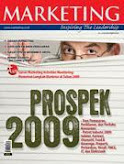 By Hugo Restall
By Hugo Restall
Posted November 7, 2008
In 2005, a notable debate was taking place in Beijing policy circles about how to rebalance the Chinese economy away from reliance on exports and in favor of greater domestic consumption. Ultimately, however, this initiative didn’t go very far. And it’s no wonder. Governments generally stick with what is working at the moment, and nobody can deny that an export orientation served China well for a long time, just as it did the other East Asian “miracles.”
The present financial crisis has put that debate in a new light. What some referred to as “unsustainable growth” is now evaporating. The region may be sitting on large reserves of foreign exchange. But it is finding that while these are good insurance against a balance of payments crisis in the region, they are not much help when the victim is the buyer of last resort itself, the United States.
Since World War II, the world has enjoyed the “deficits without tears,” as a French official once dubbed the perpetual U.S. trade imbalance. He was refering to America’s ability, due to the dollar’s status as the world’s reserve currency, to finance its imports with an inexhaustible stream of inward investment.
But now there are tears, and as we went to press it was becoming increasingly clear that many of them will be in Asia. This might seem unfair given that Asians put their financial houses in better order after the 1997 regional crisis. But putting aside who is to blame, the codependent trade relationship with the U.S. has become dysfunctional.
The election of Barack Obama as America’s next president will bring an opportunity to re-examine the region’s relationship with the superpower. It would be disastrous if the U.S. were to appease domestic interest groups by resorting to protectionism. But at the same time there needs to be a discussion about how to put trade on a sustainable track.
As Brian Klein writes in this issue, however, crisis management will probably claim the new administration’s attention first. From North Korea to Pakistan, there is always a learning curve at the beginning of a presidential term.
Paul Wolfowitz sounds a hopeful note that in the Taiwan Strait the U.S. has an opportunity to build on the foundation laid for economic cooperation by President Ma Ying-jeou. That will create the trust necessary to make political progress possible at a later stage. But the U.S. still needs to play a delicate balancing act of ensuring Taiwan’s ability to defend itself without getting drawn into efforts by either side to change the status quo.















0 komentar:
Posting Komentar